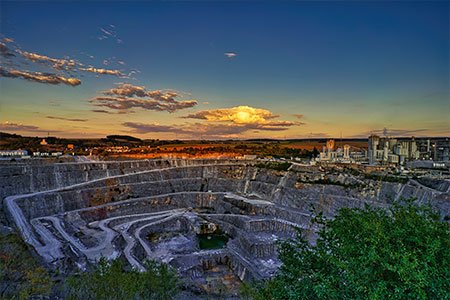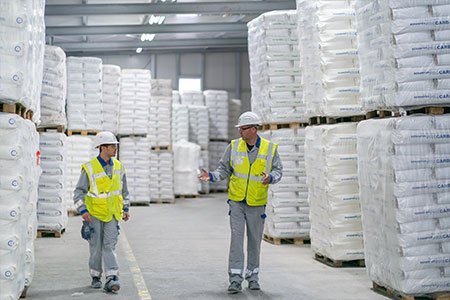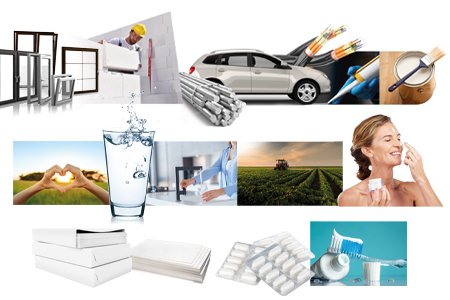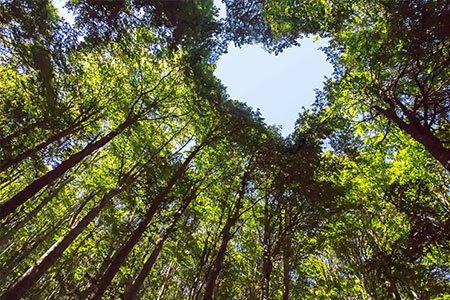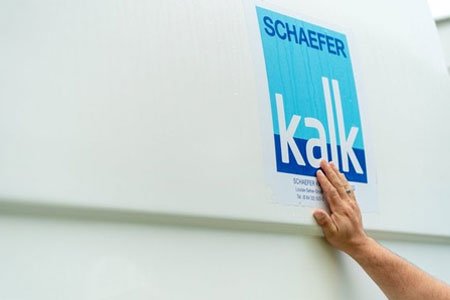CO2 declaration
The CO2 emissions that have been and continue to be released in conjunction with our society's industrialization are recognized as one of the causes of the increasingly evident climate change on our planet. Developed and developing countries are particularly contributing to this because of people's growing expectations in terms of goods, housing and mobility. An imbalance has arisen between the benefits of economic development and the associated adverse environmental impacts that can no longer be accepted. Reducing greenhouse gas emissions, especially carbon dioxide, is of crucial concern to modern society.
To address this challenge, the German government has defined firm targets for reducing greenhouse gases and has established long-term objectives in its "Climate Protection Plan 2050". At the European level, the EU Commission has also set emission reduction targets for the EU-28. These targets are currently undergoing a fundamental revision as part of the European Green Deal. The goal is to reduce net greenhouse gas emissions in the European Union to zero by 2050, making it the first continent to become climate neutral. A key instrument for monitoring and reducing industrial emissions is the EU Emissions Trading Scheme, which was established in 2005 and primarily targets power plants and industrial facilities. Based on specified upper limits (caps) and corresponding annual reduction targets, it aims at ensuring that the reduction targets are achieved. Lime industry enterprises have been part of the emissions trading system from the very beginning and fully support the CO2 emission reduction targets.
What does this mean for SCHAEFER KALK?
Lime is an important and indispensable raw material for numerous production processes and products. These include steelmaking, a wide range of chemical processes (including the production of basic materials for plastic products), building materials, wastewater treatment and drinking water treatment, flue gas purification, paper manufacturing, sugar production and many more. For most of these applications, there is currently often no alternative to the use of lime, or none that is qualitatively and economically comparable.
The production of burnt lime (quicklime) is an energy-intensive process which, in addition to the emissions from the fuels needed for it, also releases CO2 in the transformation of natural limestone into quicklime. These process emissions are chemical in nature and therefore at present not reducible. To reduce fuel emissions, SCHAEFER KALK has already invested extensively in modern kilns that, with a thermal efficiency of around 85%, currently represent the state of the art. With regard to electricity consumption, we continuously invest in increasingly efficient machinery and equipment to optimize our energy consumption even more. We use a certified energy management system to work unceasingly on reducing our electricity and fuel consumption.
A not to be underestimated factor in our efforts to reduce emissions is our ability to supply our plants locally with raw materials from our own quarries. Another factor is our regional proximity to our customers. This eliminates long truck hauls and reduces CO2 emissions. We deliver larger shipments by rail when this is possible for the customer.
We are aware, however, that we will not be able to achieve the reduction targets set with the outlined measures and efforts alone. New technologies will be needed to achieve climate-neutral lime production. The first of these involves the use of renewable energies to generate electricity and heat. Another involves the sequestration of CO2 so that it can be reintroduced as a raw material into downstream processes, for example in the chemical industry, or permanently incorporated into products or to permanent storage.
We collaborate closely with universities, research institutes and other companies to promote the development of these technologies. In this context, we provide support and guidance for specific practical ideas and projects.
Our business initiative is supplemented by research projects and studies that are coordinated in the spirit of an industry-wide initiative through the European Lime Association EULA as well as the Federal Association of the German Lime Industry BVK.
Further information on climate protection in the lime industry can be found in Roadmap 2050 of the Bundesverbandes der Deutschen Kalkindustrie e.V.(BVK) (German Lime Industry Association).
